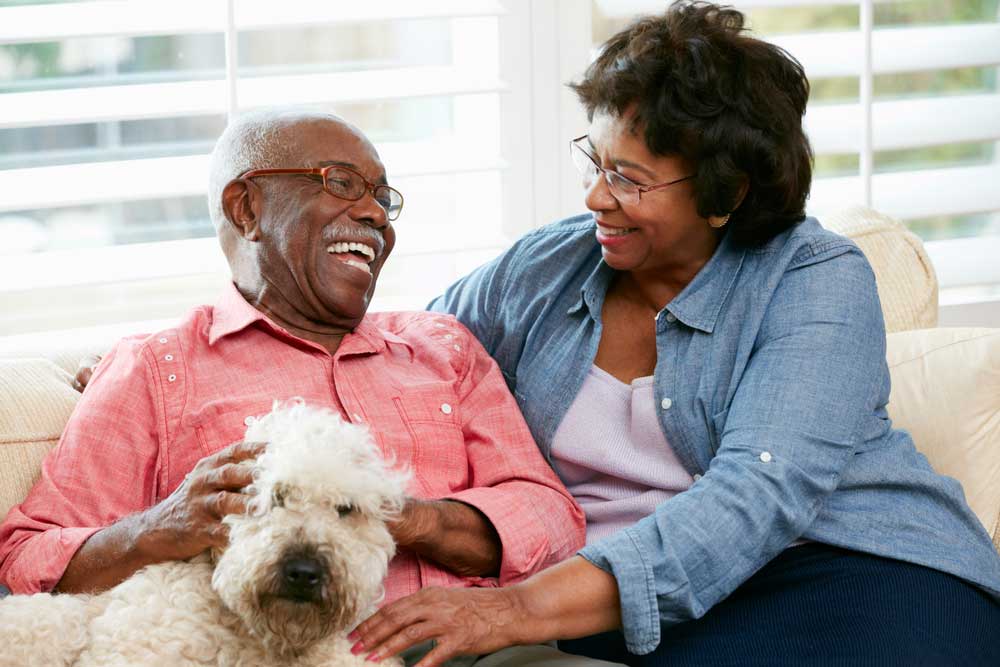Elizabeth’s Laparoscopic Assisted Vaginal Hysterectomy
Type of Hysterectomy: Laproscopic Vaginal Hysterectomy (removed uterus, cervix, and tubes. kept ovaries)
Age at surgery: 32
Location: Baltimore MD
I had a hysterectomy ultimately due to a diagnosis of suspected adenomyosis, but beyond that, I had painful bleeding for pretty much my entire adult life.
I read somewhere that post child-birth, many people found that their once horrible cycles got better. I was hoping for that. However, after having 2 kids in 2 years, my periods were worse. I was in tears most of the time because I truly felt like everything was falling out of me. It was a horrible, horrible feeling. I am a teacher, and I actually had to teach two days out of every month sitting down. I taught middle school, so I’m pretty sure my students had my cycle pretty well figured out! At that time, I was still using the same OBGYN practice that delivered my children. When I asked them why I was experiencing this, I got 2 answers about this horrible pain: 1) You look pretty good for having had 2 kids, and 2) I don’t know why you’re in so much pain, everything is exactly where it needs to be. At this time, I was only 28 years old, and was not willing to just succumb to a life of pain. My activities were very limited and I started gaining weight.
I decided to see a new OBGYN. She said that my bladder looked low, and my uterus was pressing down on it. She called this “pelvic congestion” with all of the bleeding and swelling causing things to drop and hurt. However, rather than operating on me at age 28 (even though I begged her to), she prescribed Lo Loestrin FE to control the bleeding and relieve the pelvic congestion. This birth control pill truly gave me my life back, for 3 years. After I turned 31, though, I started having breakthrough bleeding for about 2 weeks out of the month, each month. Then, we had a major family crisis, and I became very emotional. I got very easily angry, which was not like me at all. When I stopped the pill, my emotions got more in check. Not that I was happy-go-lucky in crisis, but everything was a little more even keel. But of course, without that pill, I was bleeding heavily for 2 or more weeks of the month.
It was then that my doctor mentioned adenomyosis to me. She said she was pretty confident that I had it. So, we decided to try an IUD, Mirena. For the first 2 weeks, I felt great. Then, I bled non-stop for 6 months. My doctor said she wouldn’t try to talk me out of surgery anymore, and we scheduled the hysterectomy. To say I was overjoyed is an understatement.
I did not seek a third opinion. My doctor is a leading gynecological surgeon in the area, and had never, in her history of being a surgeon, needed to convert from laproscopic to abdominal. She had tons of experience. Even though I had to wait about 4 years for the surgery, it was worth it. By getting rid of the pelvic congestion issues, we were able to leave my bladder completely alone. Had we operated sooner, when everything was inflamed and dropping, I would have needed a lot more intervention in that area, which would have made things much more difficult.
When I checked in at the hospital, I wasn’t even nervous. I was so ready to get this miserable uterus out of me! My blood pressure was perfect.
I had only one concern, and that was my glasses. My nearsightedness is so severe, that if I try to read something without correction, I have to close one eye and hold it 3 inches from my open eye. The nurses said they wouldn’t be responsible for my glasses, and that my husband would have to hold them until surgery was done. I was really anxious that I’d wake up and not be able to see. One of the OR nurses had mercy on me and kept them for me. She put them back on my face before I woke up so I could see. Bless her heart!
I had general anesthesia, and a very helpful patch behind my ear to prevent nausea. I stayed in the hospital just overnight. My surgery was around noon, and I went home the next morning after breakfast (and a good pee!). I walked the night I had surgery, and again the next morning before leaving. My doctor said, “I want you walking that day, and I want you out of there in the morning. Hospitals are for sick people and you aren’t sick!” So, I took that advice, and as soon as I could pee productively I went home.
A big concern during recovery is that I have a lot of dietary issues. When my neighborhood offered to make meals for me, I was so thankful, but also nervous, because asking for dairy free and wheat free meals is kind of a lot to ask. However, they were so thoughtful. Sometimes I got a full meal, sometimes I got GF dessert, or a fruit tray, and sometimes I got regular food that my family could eat and I just ate something else. It was so amazingly helpful.
I spent about the first 3 days on the couch sleeping. For pain management, I only used dilaudid for about 3 days. I wasn’t in tremendous pain, but my belly was swollen, and I didn’t want to get “behind” the pain, so I took those stronger meds for the first few days and then just switched to ibuprofen. The strong meds gave me really bad constipation, so on my one week hysterversary, I thought I was really going downhill but I realized I just was really backed up. I took a little Miralax and spent the day going to the bathroom! Then I felt loads better!
The other issue I had was painful urination. I made the mistake of going to urgent care because I thought my bladder was infected. Then, they wanted to send me to the ER! I did not want to go to the ER post-op during flu season, so I called my doctor. She recommended cranberry tabs, and another OTC medication to ease the bladder spasms. I depended on those meds for about 2 weeks, and then I could pee without pain again. I didn’t feel terribly bad except the first several days (which weren’t awful, just sleepy and very slow moving… struggled to get up and down, etc). So, I overdid it a few times. I just needed to relax because by the end of the day for the first 2 weeks, I was pretty sore.
I took 4 weeks off work and I’m glad I did. I felt good after 2 weeks, but very tired. After 4 weeks, I was ready to go back. My worries were resuming intimacy (after 8 weeks since I had my cervix removed), and of course, I was afraid something would happen and my guts would fall out! But, that didn’t happen.
My doctor let me choose when to return to work (2 weeks or more). I chose 4 weeks because I’m a teacher and I’m on my feet a lot. Also, I was glad I chose 4 weeks because my 2-week post op was snowed out, so when I went in at about 3 weeks, that was the first time I wore anything except for elastic waist pants.
Another challenge worth mentioning is that I had 3 separate granulation tissue removals. When I was in pain, I was very worried that the surgery didn’t correct my issues. But then I learned that granulation tissue is often part of the healing process. I had removal of it at 6 weeks, 5 months, and 6 months. It hasn’t returned again.
I am SO glad I had a hysterectomy. I really feel like I got my life back. Since I was 32 when I had the surgery, my ovaries kicked back in (only a few hot flashes in there), and I made a full recovery. My love life with my husband is so much better. As you can imagine, after bleeding constantly for 6 months, there wasn’t much going on in that department! This is much better.
I did struggle a lot with insomnia after the hysterectomy. Even though I kept my ovaries and did not experience menopause, I still really struggled to sleep. I have since found relief with probiotics and chiropractic care. I highly recommend that if your sleep schedule gets out of whack post op.
I think this is a very individual decision. Try to be in the best physical health possible before the operation. That will help you. Some people train for a marathon, but I trained for my hysterectomy.
I had no concerns about regret, and I absolutely have no regret. But, if that is something that you’re concerned about, just explore all other avenues first- try holistic things, second opinions, etc. I don’t think my uterus defined me as a woman. I think my heart does. I feel more like a woman now because I am functioning optimally, and my health is so greatly improved. But these psychological implications are very individual, and I encourage women to take the time to explore them so that they can have the best chance at full healing.
When you’re recovering, If people offer to help, say yes, and then give them a job to do. Don’t overdo it, or ignore lifting restrictions. You only want to have your guts messed with once. Call and go see your doctor as much as you feel necessary. You have entrusted him/her with a major surgery, you have the right to call and get answers as much as you need.
Every month, on the 19th, I smile and celebrate my hysterversary, because it truly was life changing. This month, on the 19th, it will be a full year since surgery. And I cannot say enough how thankful I am. I don’t know what I would have done if I didn’t have the surgery.







